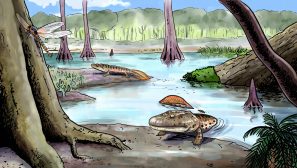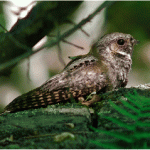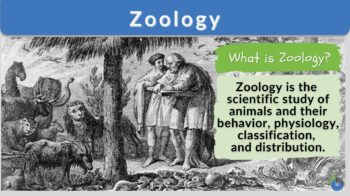
Zoology
n., plural:
[zoʊˈɑləd͡ʒi]
Definition: Biological science of animals
Table of Contents
Zoology Definition
Zoology is an ever-evolving branch of Biology dealing with the members of the Kingdom Animalia. It continually adapts and incorporates new technologies and research techniques to unravel the mysteries of the animal world, hence addressing pressing ecological and environmental challenges and fostering a deeper appreciation for the incredible diversity of life on our planet.
- Definition of Zoology: Zoology can be defined as the branch of biology (biological sciences or life sciences) dealing with fauna life forms, i.e. the kingdom Animalia. The branch not only deals with the identification of animal life but also encompasses morphological, anatomical, physiological, biochemical, evolutionary biology, ecological distribution, behavioral patterns, genetics, molecular biology, population genetics, taxonomy, and classification of animals.
- Definition of Zoologist: An individual who specializes in the scientific study of animals (i.e. zoology) is known as a zoologist.
Watch this vid about zoology:
Biology definition:
Zoology is the branch of biology that deals with animals, particularly the study of the structure, physiology, development, and classification of animals among others. It has various sub-disciplines:
- Animal anatomy (concerned with the anatomical features of animals)
- Animal physiology (deals with the physiological processes in animals)
- Animal histology (concerned with the study of animal tissues)
- Animal embryology (focused mainly on studying animal embryos)
- Taxonomy (including identification and classification of animals, and therefore encompasses fields such as mammalogy, herpetology, ornithology, entomology, ichthyology, invertebrate zoology, etc.)
- Zoogeography (concerned mainly with the study of animals and their habitats)
- Comparative anatomy (deals with the similarities and differences in the anatomy of different species)
- Ethology (concerned with the study of animal behavior
A closely related field is veterinary medicine. In particular, it is a branch of medicine that deals with the diseases and treatment of non-human animals.
Etymology: from Ancient Greek ζῷον (zôion), meaning “animal” and λόγος (lógos), meaning “knowledge”
Synonym: animal biology; zoological science
History Of Zoology
The science of animals has always been attractive to human beings. Naturalists (professionals interested in natural science; both animals and plants) and scientists are always driven by the beauty and the striking peculiarities of the animal world.
Aristotle, the well-renowned Greek philosopher is known to be quite interested in animal sighting and observations.
- History of Zoology: Ancient to Modern
- Evidence of zoological studies from ancient times: Evidence of animal studies from ancient times is found in various forms of art including carvings, engravings, and other artistic representations. A notable example is ancient cave art (as in the caves like Lascaux in France and Altamira in Spain).
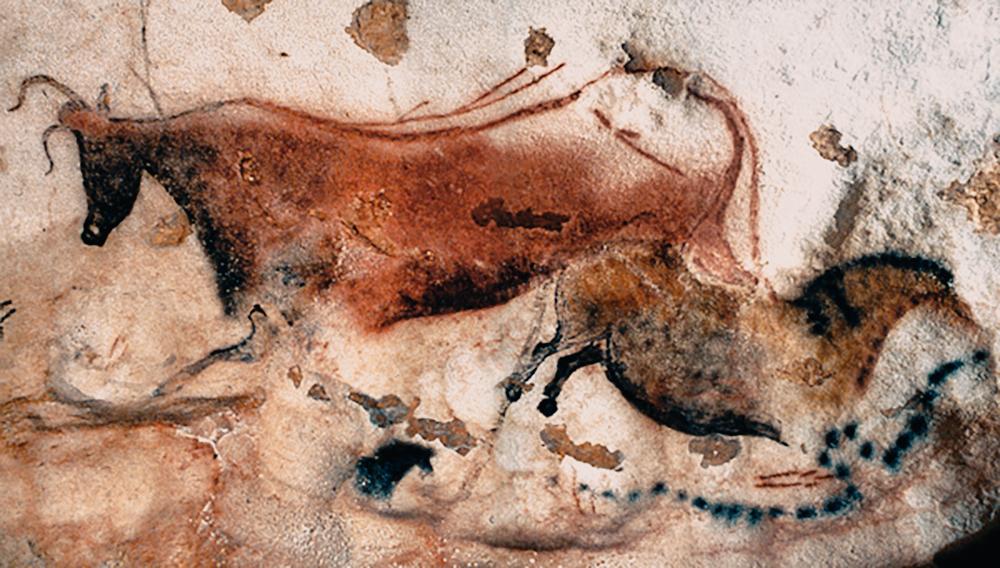
- Evidence of zoological studies during early scientific exploration by philosophers: Early philosophers, while not conducting formal scientific studies in the modern sense, made important observations and philosophical inquiries about animals as part of their broader contemplations on the natural world and the human condition. A notable example is that of Aristotle (384-322 BCE). He made significant contributions to the study of animals through his work in biology. In his treatise “Historia Animalium”, Aristotle recorded detailed observations on animal behavior, anatomy, and classification. He also proposed a “rudimentary theory of evolution” that suggested change in species is accumulated over time.

Figure 2: A picture signifying Aristotle’s work on animals. His book is widely accepted as the 1st comprehensive zoological work attempting to describe all the animal forms and lives. Image Credit: Universiteit Leiden - Evidence of zoological studies during scientific exploration by modern naturalists: During the early scientific exploration by naturalists and scientists, zoological studies began to take a “more systematic and empirical approach”. While the scientific methods used during this time may not have been as rigorous as today’s standards, early naturalists and scientists conducted experiments, took rational observations, and conducted systematic studies to better understand the animal kingdom. One of the notable examples is that of Carolus Linnaeus (1707-1778) who conducted extensive experiments and “classified numerous animal species” based on their characteristics. His systematic approach to taxonomy laid the foundation for the organization and naming of species in the animal kingdom.

Figure 3: Carolus Linnaeus, also known as the “father of taxonomy” brought an objective classification system to study zoology. Image Credit: Australian National Botanic Gardens
Branches Of Zoology
The different branches of zoology deal with different aspects of the animal kingdom. A brief overview of what each of the branches encompasses is summarized below.
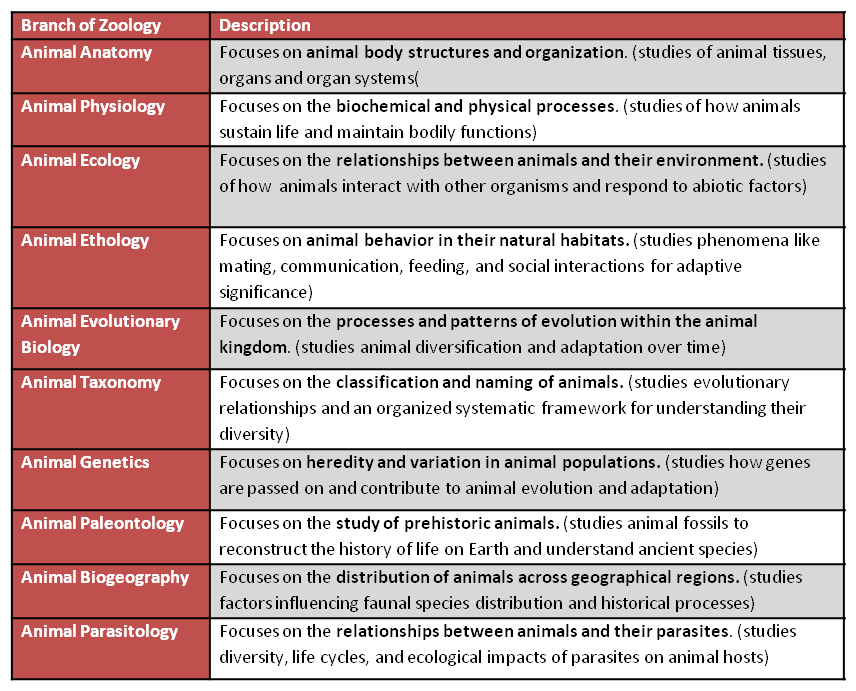
-
Zoography
Zoography is a lesser-known terminology and branch of Zoology. It is used to describe the studies of animals about their geographic distribution on the planet while also elucidating the topics like habitat preferences, species behavior, and their ecological interactions with other species.
You might think this is somewhat overlapping with other branches like Ecology and Ethology, but Zoography is different in context to the way it’s studied; animals are usually studied in their natural habitats and environments.
This provides a wholesome perspective of “how an animal thrives” and “which ecological roles it is assigned by nature”.
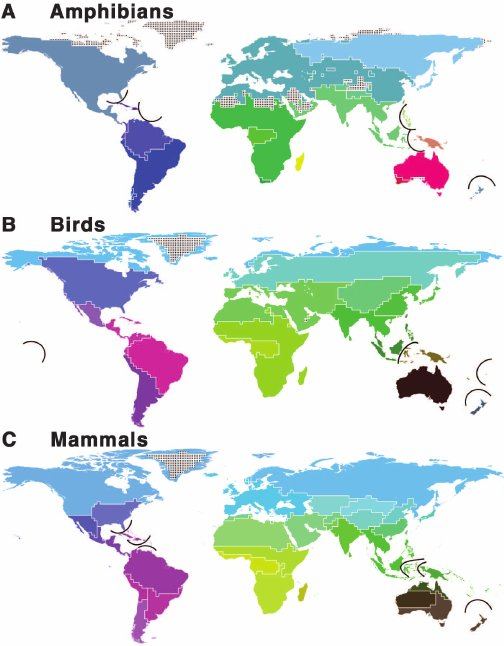
-
Comparative Anatomy
Comparative anatomy is a fascinating field of Zoology dealing with similarities and differences in the anatomical structural features of different animal species. By comparing and contrasting the anatomies of various organisms, comparative anatomists (experts in the field of comparative anatomy) gain valuable insights into evolutionary relationships (how distantly or closely related species are) and adaptations.
NOTE IT!
New Facet of Comparative Anatomy: Modernization in the Way We Compare Species!!
With the advent of technology, the way we studied and compared animal species to draw similarities and differences has evolved a lot. The application of “advanced imaging techniques” like CT scanning and 3D modeling has completely revolutionized the way we compare species. (Ref-2,3,4) These new technologies have allowed researchers to non-invasively explore the internal structures of animals in unprecedented detail in their research projects. By creating digital representations of organs and skeletons, modern-day comparative anatomists can compare and analyze the intricacies of various species with great precision.
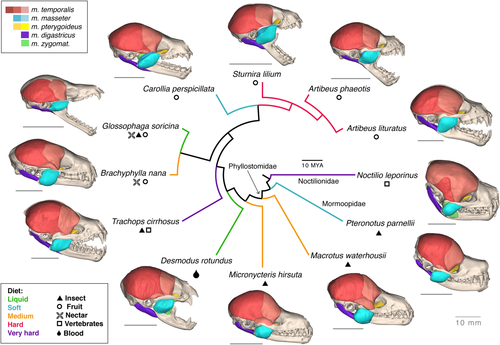
Another facet of this technological advancement is the growing understanding of “genomics approaches” amongst comparative anatomy which has kick-started the incorporation of genetic data in the subject. (Ref-5,6) By studying the shared and unique genetic pathways that shape the development of organs and body structures, scientists unravel the molecular basis of evolutionary changes.
Example: In a study by Sharma, V. et al., the genomics approach played a pivotal role in understanding sperm whales’ diving and dietary adaptations. By analyzing their entire genetic makeup, the scientific research group identified the loss of the AMPD3 gene, facilitating extreme diving ability by increasing ATP levels for efficient oxygen release. Comparative anatomical studies using the genomics approach also revealed the loss of the BCO1 gene, likely an adaptive change in response to a specialized diet of vitamin A-rich but beta-carotene-poor squid. This approach provided valuable insights into specific genetic variations, functional consequences, evolutionary history, and unique adaptations of sperm whales.
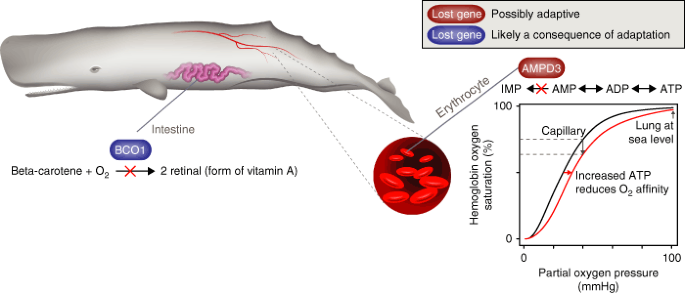
Benefits of Incorporating Technological Interventions in Comparative Anatomy
Some of the major benefits of modernizing the field of comparative anatomy are:
- It allows researchers to delve deeper into new frontiers and gain deeper insights into the evolutionary relationships and adaptations of animal species.
- It has brought a paradigm shift in how we study and compare animals.
- It helps us explore the internal structures of animals with unprecedented detail.
- It has opened up new possible arenas for studying rare and delicate species without causing harm to the specimens.
- It enables researchers to make precise comparisons between different species.
- It enables researchers to uncover the molecular basis of evolutionary changes.
- It provides a deeper understanding of the mechanisms driving the diversification of animal forms.
- It facilitates cross-disciplinary collaborations, bringing together experts from various fields like genetics, imaging, and paleontology. This collaborative effort helps in expanding the scope of comparative anatomy.
-
Animal Physiology
Animal physiology is a captivating field of study that delves into the inner workings of animals’ bodies. It uncovers the intricate mechanisms that enable them to survive and thrive in their environments. With recent advances in technology and innovative research approaches, animal physiology continues to offer fresh perspectives on how different species function and adapt.
One exciting area of exploration in animal physiology is the study of molecular adaptations. It gives insights into the genetic and molecular basis of physiological traits and helps researchers unravel the specific genes and proteins that govern an animal’s response to various environmental challenges.
By understanding these molecular adaptations, scientists can gain insights into how animals have evolved to survive in diverse habitats, from extreme cold to extreme heat, and even in low-oxygen environments.
-
Ethology
- Animal Ethology is a field of study that explores the behavior of animals in their natural environments.
- Modern Ethology utilizes advanced technologies to study animal behavior:
- High-resolution cameras
- Drones
- Bioacoustic recording devices
- GPS tracking devices
- Radio telemetry
- Accelerometers
- Infrared cameras
- RFID (Radio-Frequency Identification) tags
- Satellite tracking
- Biologging
- These technologies allow ethologists (experts in the field of ethology) to observe, measure and analyze the complexities of natural behaviors in a wide range of animal species. (Ref-7,8)
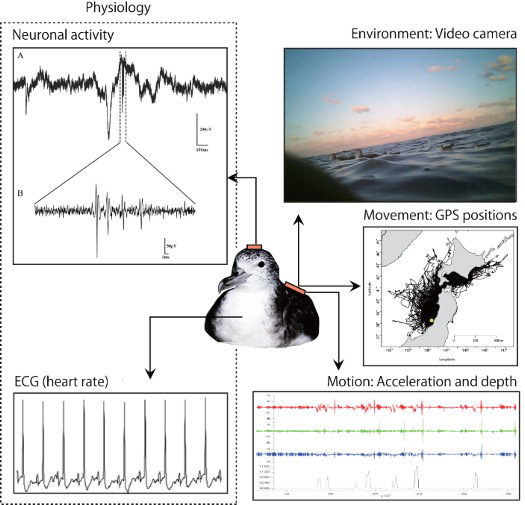
-
Behavioral Ecology
Animal behavioral ecology is a branch of zoology that investigates the behaviors of animals in the context of their ecological interactions and natural environments. Behavioral ecologists are increasingly using sophisticated analytical tools to explore large datasets.
Techniques like machine learning (ML), deep learning analysis, and network analysis offer new perspectives on complex social behaviors and the dynamics of animal populations. By extracting patterns and correlations from extensive data, researchers gain deeper insights into the underlying mechanisms driving animal behavior. (Ref-9,10,11)

-
Groupings by Animal
While different branches of zoology dealt with different types of studies in the section above, zoology can also be made easy by grouping animals according to the specific groups (higher taxonomic ranks). Such a grouping provides a comprehensive understanding of their characteristics, behaviors, and ecological roles. Some of the important examples of groupings by the animal are discussed below.
- Cetology: The study of cetaceans. (whales, dolphins, and porpoises)
- Malacology: The study of mollusks. (snails, clams, and octopuses)
- Arachnology: The study of arachnids. (spiders, scorpions, and ticks)
- Herpetology: The study of amphibians and reptiles. (frogs, snakes, turtles, and lizards)
- Entomology: The study of insects. It has subgroups like:
- Lepidopterology (butterflies and moths)
- Myrmecology (ants)
- Coleopterology (beetles)
- Nematology: The study of nematodes. (roundworms)
- Ichthyology: The study of fish. (both freshwater and marine species of fish)
- Primatology: The study of primates. (monkeys, apes, and humans)
- Ornithology: The study of birds. (sparrow, peacock, seagulls)
- Mammalogy: The study of mammals. (bats, elephants)
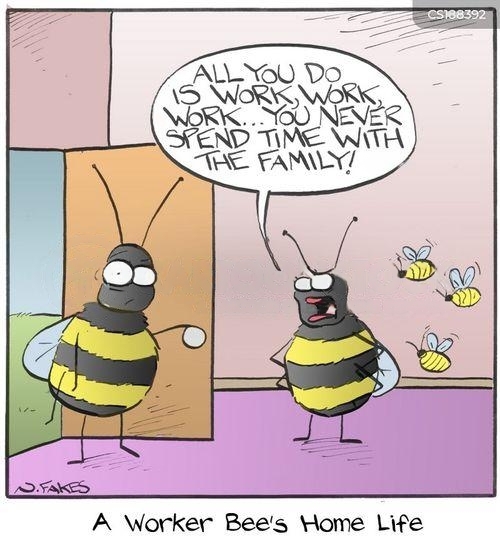
-
Embryology, or developmental studies
- Animal embryology, also known as developmental biology or embryogenesis, is the field that explores the early stages of animal life from fertilization to the formation of complex structures.
- This is a vibrant and evolving field, continuously enriched by advanced technologies and interdisciplinary insights. Some of the areas explored in current times are:
- Genetic manipulation
- Evo-devo
- Epigenetics
- Organoids
- Regenerative medicine
- One exciting aspect of modern animal embryology is the integration of advanced imaging and visualization techniques. High-resolution time-lapse microscopy and optical coherence microscopy allow researchers to observe and document the intricate cellular and molecular events that occur during embryonic development in real-time. This is a type of “non-invasive approach” which provides a deeper understanding of how various genetic and environmental factors influence embryogenesis.
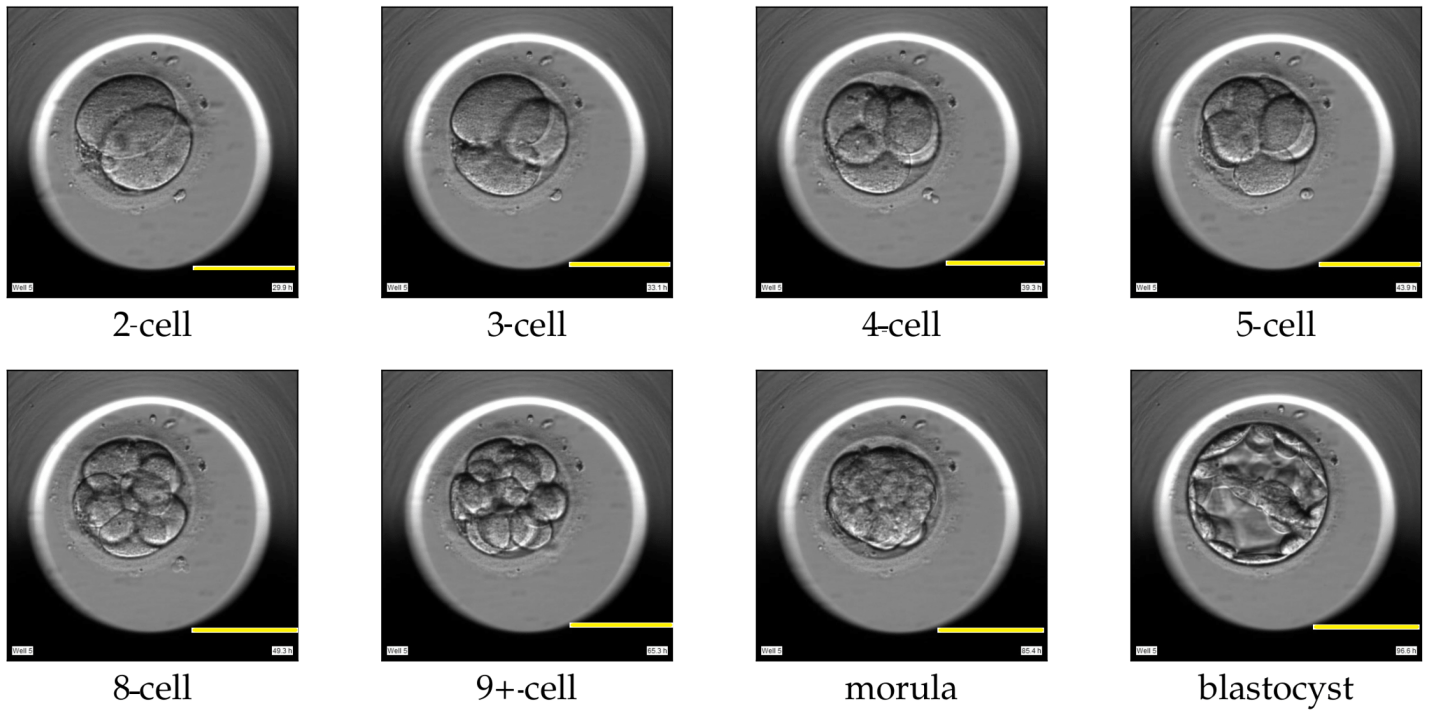
-
Evolutionary biology
Animal evolutionary biology is a branch of zoology that explores the processes and patterns of evolution within the animal kingdom.
One of the most exciting aspects of modern animal evolutionary biology is the integration of genomic data. Recent advances in DNA sequencing technologies have allowed researchers to obtain vast amounts of genetic information from diverse animal species. By analyzing genomes, scientists can trace evolutionary relationships, identify genetic changes associated with specific traits, and understand the molecular basis of speciation.
Additionally, researchers are now exploring the impact of ancient and ongoing climate change on animal evolution. This becomes interesting as one can study different elements like fossils, genetic data, and ecological patterns, and then reconstruct a plausible hypothesis of how past environmental changes have influenced the distribution, migration, and adaptation of animal species. Understanding these historical processes can offer valuable lessons for “predicting how current climate change may affect the survival and evolution of animal populations”.
Example: We are all aware of the effect of climatic changes on the distribution of animal species. Both local and global climate change affect the way that species evolve. In their research study, Camille Parmesan talked in depth about how range-restricted species (like wild animals, polar bears, or coral reefs) have been severely affected by the human impact on climate change in the past century. (Ref-15, 16) This has not only pushed several species on the verge of extinction but has also changed the way that species evolve. “Predator-prey relationships” and “plant-insect interactions” have also been disrupted but one can notice how “co-evolution” has ensured that climate change does minimum damage to these interrelationships. You can read more about co-evolution in our article here.
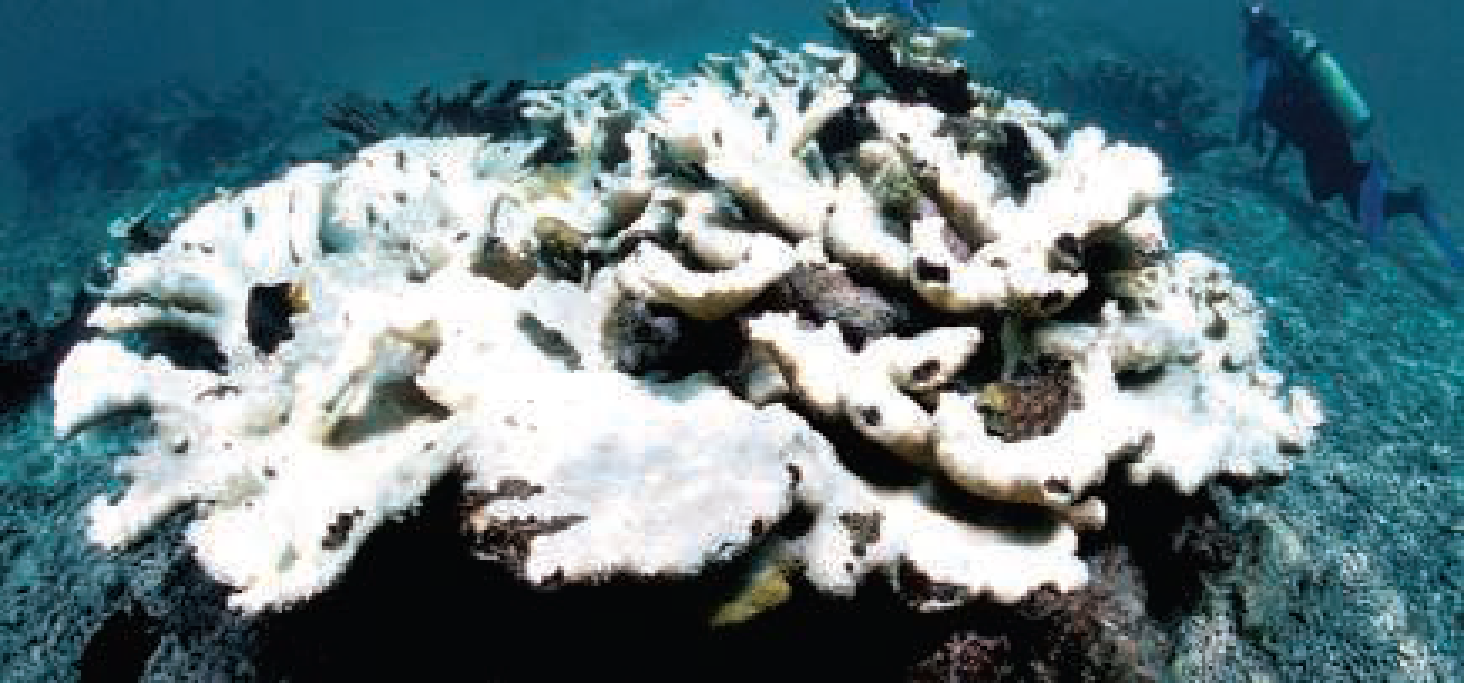
-
Molecular biology
Animal molecular biology is a branch of zoology that delves into the intricate mechanisms and processes that govern animal life at the molecular level. Researchers (called animal molecular biologists) in this field strive to understand how genetic information is expressed, regulated, and modified in various animal species.
One of the most groundbreaking advancements in recent years has been the discovery and application of CRISPR-Cas9, a revolutionary gene editing tool that has transformed the landscape of genetic research. CRISPR-Cas9 is a gene-editing technology derived from the adaptive immune system of bacteria. With its two main components (the Cas9 enzyme and a guide RNA), the CRISPR-Cas9 system offers a novel approach to manipulate epigenetic markers, at specific gene loci in animal models, thus paving the way for the exploration of their role in various biological processes like development, aging, and disease. (Ref-17)
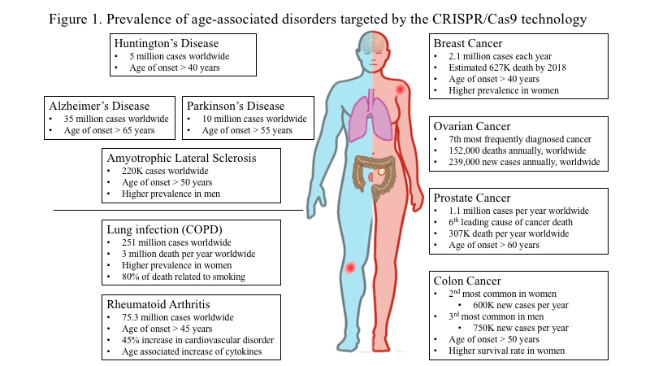
Methods In Zoology
In zoology, researchers employ a wide range of laboratory methods to study various aspects of animals’ biology, behavior, physiology, genetics, and ecology. Below are some common laboratory methods used in zoology.
Table 1: Different methods commonly used in zoology. |
|
|---|---|
| Laboratory Method | Purpose |
| Microscopy | Examining cellular and subcellular structures |
| DNA Sequencing | Studying genetic diversity and evolution |
| Immunohistochemistry | Detecting specific proteins in animal tissues |
| Behavioral Observations | Studying animal behavior and responses |
| Radio Telemetry | Tracking animal movements in natural habitats |
| Histology | Examining tissue structure under a microscope |
| Electrophysiology | Studying electrical activity in tissues and organs |
| ELISA | Quantifying molecules in animal samples |
| Gas Chromatography-Mass Spectrometry | Analyzing organic compounds in animal samples |
| Respirometry | Measuring metabolic rates of animals |
| X-ray and CT Scanning | Studying skeletal structures and internal organs |
| Bioacoustics | Analyzing animal sounds and communication patterns |
Data Source: Dr. Harpreet Narang of Biology Online
Applied Zoology
Applied zoology is also known as zootechnics or animal biotechnology. It is a branch of zoology that focuses on the practical applications of animal biology to address real-world challenges. It involves the integration of various scientific disciplines to improve animal health, welfare, and productivity.
From developing sustainable animal agriculture practices (domesticated animals/ domestic animals) to advancing biomedical research using animal models, applied zoology plays a crucial role in enhancing how humans and animals interact and also in mitigating environmental impacts.
By harnessing cutting-edge technologies such as genomics, bioinformatics, and reproductive technologies, applied zoology offers innovative solutions for:
- Optimizing food production
- Conserving endangered species
- Promoting human and animal well-being
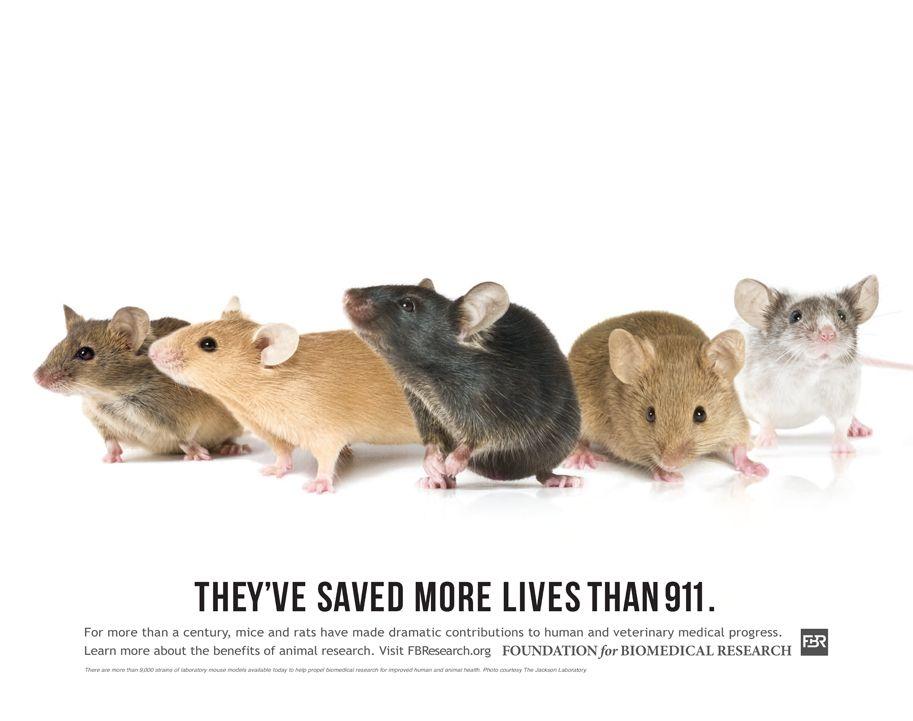
Moving Forwards: Zoology Career
For students captivated by the mysteries of the biological world and animal behavior, a career in zoology offers an exciting journey. Zoology graduates or students with zoology majors are the frontrunners in wildlife conservation as they engage in the scientific study of different faunal life forms and their evolutionary history.
- Work: Armed with both communication skills and knowledge in life and physical sciences, developmental biology, and natural history, zoologists unravel the behavioral patterns and population genetics of diverse living systems.
- Future Work Prospects: As these professionals step into the field, they can collaborate with conservation groups and government agencies, working closely to protect the natural environment and the inhabitants it shelters. In their roles within the federal government and beyond, zoology graduates play an indispensable role in shaping policies, conducting groundbreaking research, and safeguarding our planet’s biodiversity.
- Arena of Work: From individual animals to entire ecosystems in remote locations, zoologists assess the impact of human activities and devise strategies to ensure harmony between humans and animals. Zoologists explore animal shelters, research facilities, and fieldwork to grasp the intricacies of animal behavior and habitat dynamics.
- Requirements: Achieving a zoology career often begins with pursuing a Bachelor’s degree, followed by specialized studies in a Master’s degree program. Throughout this educational journey, hands-on practical experience is paramount. As they delve into the mysteries of the animal kingdom, zoologists are driven by the fundamental principles of cell theory and vital phenomena, unraveling the wonders of animals and plants alike.
Embarking on this zoology career path, students passionate about the natural world find themselves at the forefront of conservation efforts, leaving an enduring impact on our planet’s most fascinating creatures and ecosystems. ☺
Take the Zoology – Biology Quiz!
Further Reading
References
- Holt, B. G., Lessard, J. P., Borregaard, M. K., Fritz, S. A., Araújo, M. B., Dimitrov, D., … & Rahbek, C. (2013). An update of Wallace’s zoogeographic regions of the world. Science, 339(6115), 74-78.
- Santana, S. E. (2018). Comparative anatomy of bat jaw musculature via diffusible iodine‐based contrast‐enhanced computed tomography. The Anatomical Record, 301(2), 267-278.
- Orliac, M. J., & O’leary, M. A. (2014). Comparative anatomy of the petrosal bone of dichobunoids, early members of Artiodactylamorpha (Mammalia). Journal of Mammalian Evolution, 21, 299-320.
- Resnis, E., Gamberi, C., & Minnich, J. (2023). Skulls Tell Tales: Using 3D Printing and Medical Imaging to Enhance the Comparative Anatomy Lab Experience.
- Sharma, V., Hecker, N., Roscito, J. G., Foerster, L., Langer, B. E., & Hiller, M. (2018). A genomics approach reveals insights into the importance of gene losses for mammalian adaptations. Nature communications, 9(1), 1215.
- Mattucci, F., Galaverni, M., Lyons, L. A., Alves, P. C., Randi, E., Velli, E., … & Caniglia, R. (2019). Genomic approaches to identify hybrids and estimate admixture times in European wildcat populations. Scientific Reports, 9(1), 11612.
- Lahoz-Monfort, J. J., & Magrath, M. J. (2021). A comprehensive overview of technologies for species and habitat monitoring and conservation. BioScience, 71(10), 1038-1062.
- Yoda, K. (2019). Advances in bio-logging techniques and their application to study navigation in wild seabirds. Advanced Robotics, 33(3-4), 108-117.
- Williams, H. M., & DeLeon, R. L. (2020). Deep learning analysis of nest camera video recordings reveals temperature-sensitive incubation behavior in the purple martin (Progne subis). Behavioral Ecology and Sociobiology, 74, 1-12.
- Tuia, D., Kellenberger, B., Beery, S., Costelloe, B. R., Zuffi, S., Risse, B., … & Berger-Wolf, T. (2022). Perspectives in machine learning for wildlife conservation. Nature communications, 13(1), 792.
- Webber, Q. M., & Vander Wal, E. (2019). Trends and perspectives on the use of animal social network analysis in behavioural ecology: a bibliometric approach. Animal Behaviour, 149, 77-87.
- Karnowski, K., Ajduk, A., Wieloch, B., Tamborski, S., Krawiec, K., Wojtkowski, M., & Szkulmowski, M. (2017). Optical coherence microscopy as a novel, non-invasive method for the 4D live imaging of early mammalian embryos. Scientific reports, 7(1), 4165.
- Chung, Y. H., Hsiao, Y. H., Kao, W. L., Hsu, C. H., Yao, D. J., & Chen, C. (2015). Microwells support high-resolution time-lapse imaging and development of preimplanted mouse embryos. Biomicrofluidics, 9(2).
- Sharma, A., Ansari, A. Z., Kakulavarapu, R., Stensen, M. H., Riegler, M. A., & Hammer, H. L. (2023). Predicting Cell Cleavage Timings from Time-Lapse Videos of Human Embryos. Big Data and Cognitive Computing, 7(2), 91.
- Parmesan, C. (2006). Ecological and evolutionary responses to recent climate change. Annu. Rev. Ecol. Evol. Syst., 37, 637-669.
- Stanley G. D., Jr (2006). Ecology. Photosymbiosis and the evolution of modern coral reefs. Science (New York, N.Y.), 312(5775), 857–858. https://doi.org/10.1126/science.1123701
- Brane, A. C., & Tollefsbol, T. O. (2019). Targeting telomeres and telomerase: studies in aging and disease utilizing CRISPR/Cas9 technology. Cells, 8(2), 186.
- Caobi, A., Dutta, R. K., Garbinski, L. D., Esteban-Lopez, M., Ceyhan, Y., Andre, M., … & El-Hage, N. (2020). The Impact of CRISPR-Cas9 on age-related disorders: from pathology to therapy. Aging and disease, 11(4), 895.
©BiologyOnline.com. Content provided and moderated by Biology Online Editors.



